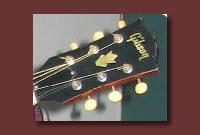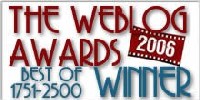“Box Car Numbers, Jimmy.â€
As some of you know, I was away on vacation last week. We were aboard the Zenith for a cruise to Bermuda. I’ll have more to share about the trip later. However, I wanted to take just a couple minutes to add my thought to those of Jack and TJ on the occasion of my Uncle Bill’s passing last week.
I learned about Uncle Bill’s death when I opened the note that a crewmember had slipped under my stateroom door while we were somewhere on the ship most likely eating (there was plenty of that) or drinking (there was really plenty of that). The note was taken down by the modern day equivalent of a radio operator who received the call from TJ. It was very carefully worded so as not to scare hell out of me. Ultimately, however, there was no way to avoid the point of the message. Uncle Bill had passed away.
I had only seen Uncle Bill a couple times over the past twenty or so years, and it was clear that no one expected me to leave the ship to fly back to New Jersey for the wake. However, being aboard the ship provided me with a bit of quiet time to gaze into the ocean and think about Uncle Bill and to picture him with the ever present cigar (pronounced SEE-gar) in his mouth, which was only sometimes lit.
Uncle Bill was married to my mother’s sister, Eleanor. We lived in a two family house in Kearny, New Jersey. Uncle Bill, Aunt Eleanor and my cousin Michael, nine years my junior, lived on the second floor, and my parents and I lived on the first floor. However, because of the closeness of the families (they owned the house together), it was more like a crazy one-family house, connected by a back hallway and a front hallway (although no one ever used the front door or front hallway). The doors were never locked, and Uncle Bill, Aunt Eleanor and Mike were “downstairs†as often as we were “upstairs.â€
Growing up in an extended family had many benefits, not the least of which was that each of the adults in my childhood imparted to me their own particular brand of wisdom. For example, my mother taught me how to laugh hysterically at life’s follies, how not to take shit from anyone, and to always remember that children, are little people with very large feelings, which always were to be handled with the utmost care. My dad’s gift to me was his love for history, the importance of education (he wasn’t fortunate enough to have been formally educated, but was wise beyond description), and the magic of music. Aunt Eleanor taught me the importance of kindness and a clear head when things sometimes got a little squirrelly. Uncle Bill taught me about the world in which there are plenty of people not quite like my mother, father or Aunt Eleanor.
He loved to play the horses. I recall being only about ten years old and regularly going to the corner drug store to pick up an Armstrong Daily (a horse racing sheet for serious horse players) for Uncle Bill. Every night at six o’clock, no one would dare speak “upstairs†because we knew that’s when Uncle Bill listened to every word of the daily race results on the radio. I think by the time I was eleven, I knew more than any other eleven year old about “the track,†about bookmakers, and about horse players in general.
I specifically recall Uncle Bill asking me if I wanted to take a ride with him “Down Neck†(the Ironbound Section of Newark) to run some errands and to “talk with a couple a guys.†I always looked forward to these trips, because it gave me a chance to see some of Uncle Bill’s colorful friends. They all had interesting nicknames, not unlike the names one hears on the Sopranos. Uncle Bill was known to them as “Harp.â€
“Hey Harp. Who’s da kid?â€
“He’s my sister-in-law’s son. I’m just showin’ him around. Jimmy, say hello to Doo-Doo.â€
“Hi, Doo-Doo. Nice to meet ya.â€
“Hey, Jimmy. Nice to meet you. Good kid there, Harp. Yo, Jimmy. When’s Harp gonna take you to da track?â€
“When he gets a little older. Right now I’m just showin’ him the ropes.â€
They also all talked exactly like him in a kind of New Jersey English spoken, to my knowledge, exclusively Down Neck. So, in “Down Neckese†the word “follow†was pronounced “folee,†and “swallow†was “swalee.†The word “ate†was pronounced “et,†most often heard as “No, nothing for me, thanks. I already et.†A “thief†was a “teef†and a “tooth†was a “toot.†One went to the dentist to get you “teet†fixed or because you had a “tootache.â€
One day when I was 14 years old, he and my mother were headed off to the track and, true to Uncle Bill’s word, they decided to take me along for the day. I can recall being a bit worried that the minimum age for admittance to the track was 16 and that the trip would be a bust for Uncle Bill and my mother, if I were not permitted to enter. As we were walking from the car to the entrance, my mother lit a cigarette, handed it to me, and said “Put this in your mouth as we go through the entrance. It’ll make you look 16.†Uncle Bill got a kick out of that, and cigarette thing worked. I was finally at the track.
Once inside, the first lesson Uncle Bill taught me was the “law of the newspaper,†which is that, once you put your newspaper on a seat, it was yours for the day. No self-respecting horse player would dream of taking a seat on which someone had placed “his paper.†I also learned that when a certain jockey, named Walter Blum, ran out of the money with a favorite, the thing to do was to stand by the paddock after the race and wait for the jockeys to walk by for a chance to call Walter Blum a “bannana-nosed teef.â€
Another time he took me to the track, and he had a particularly good day. He had won money on four or five races and parlayed it all on a horse in the ninth and final race. Amazingly, after he placed the bet, we left the track before the start of the race in order to “beat the traffic.†The next morning, he opened the newspaper to the section that contained the race results. He was sitting across the table from me, so all I could see was the front and back pages of the opened newspaper. After a frustrating period of silence, all he said was, “That horse came in.†I knew that etiquette dictated that one never asked how much money someone won (or lost), but knowing that he had put the proceeds of five winning races on the horse, I could not resist, so I asked, “How much did you win?â€
He lowered the newspaper from his face, smiled and said, “Boxcar numbers, Jimmy. Boxcar numbers.â€
What a wonderful education.
Uncle Bill. May he rest in peace and enjoy an eternity of SEE-gars, fast tracks and winning horses that pay boxcar numbers.




